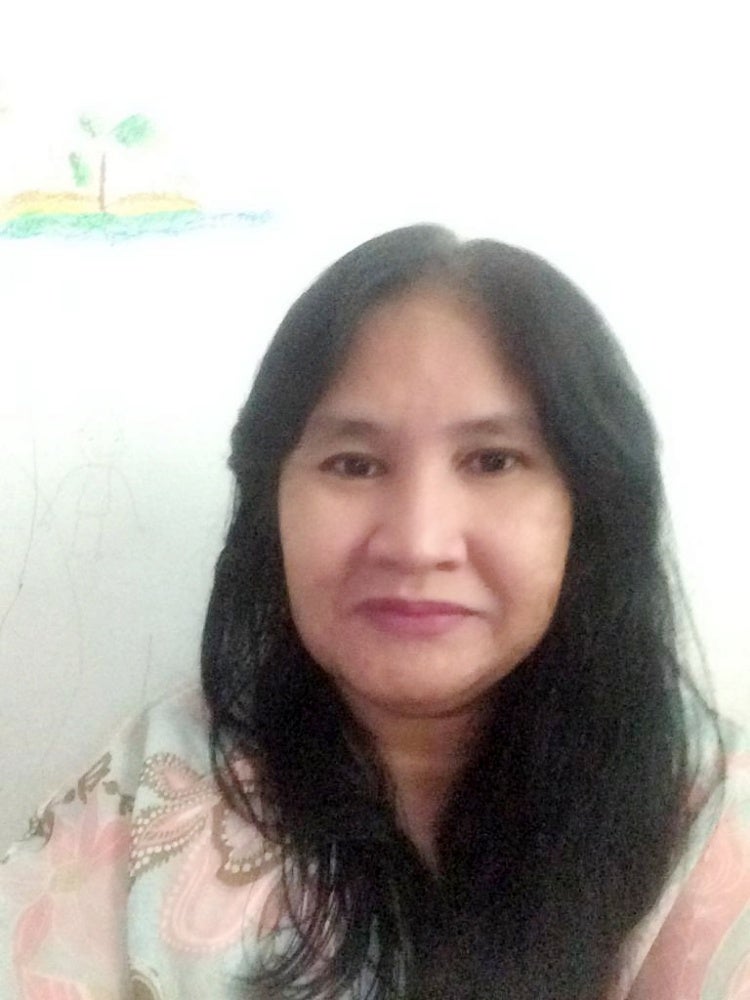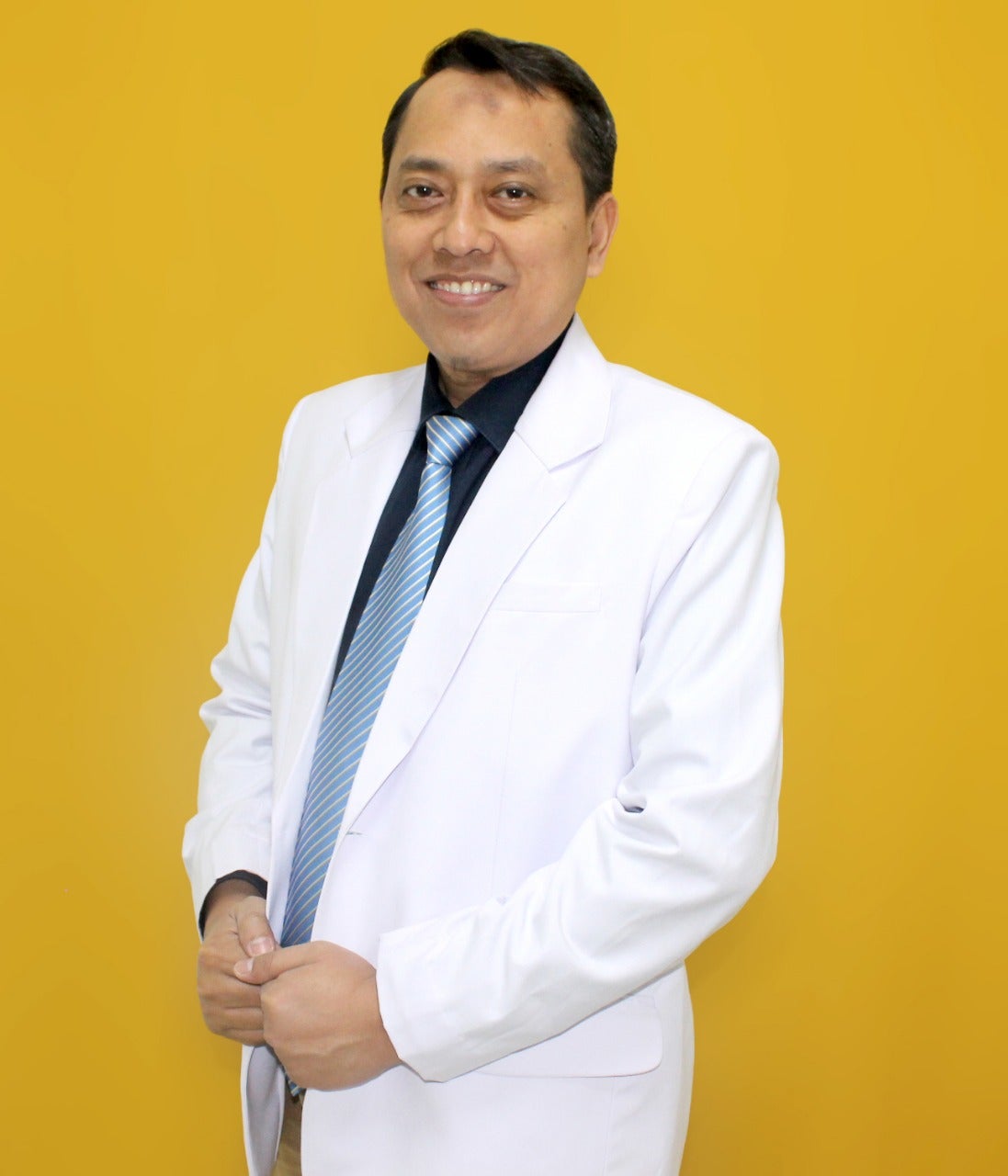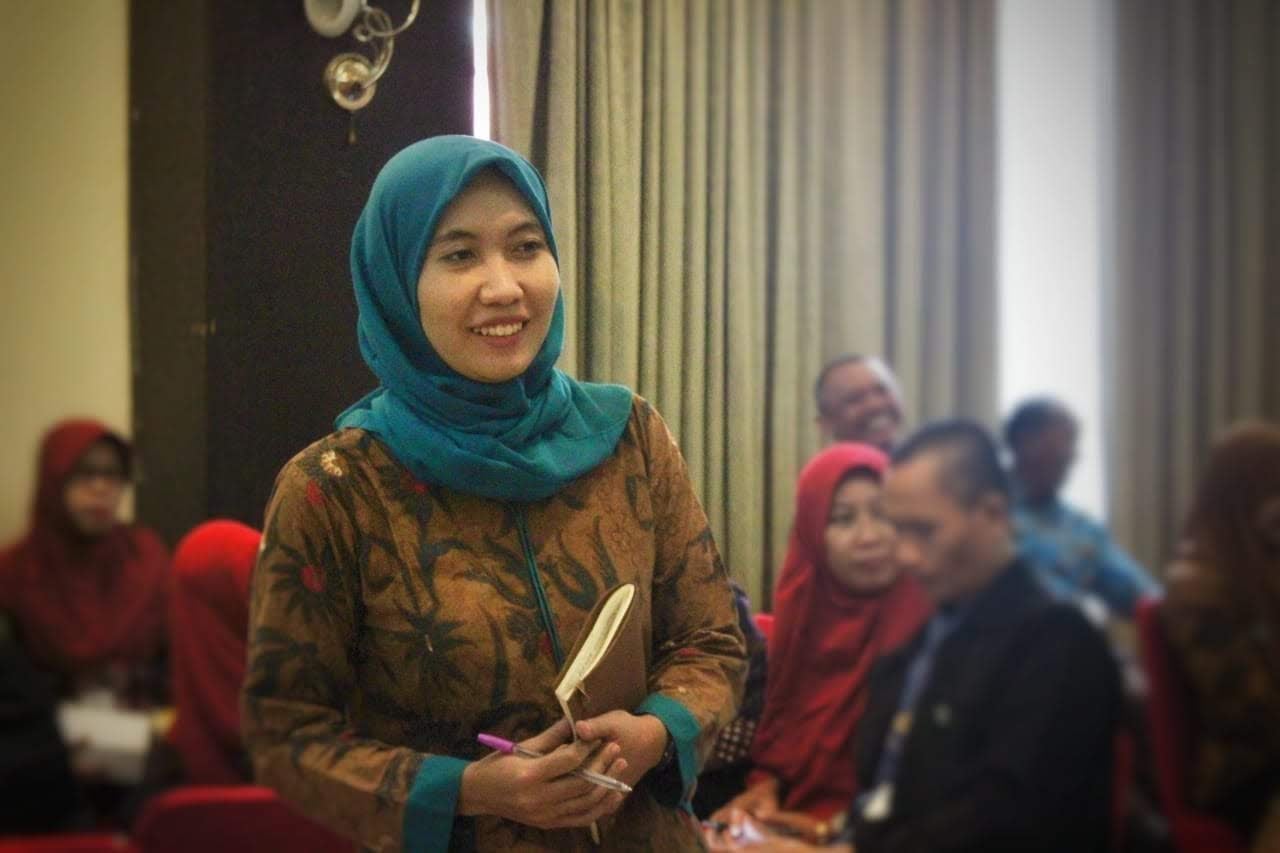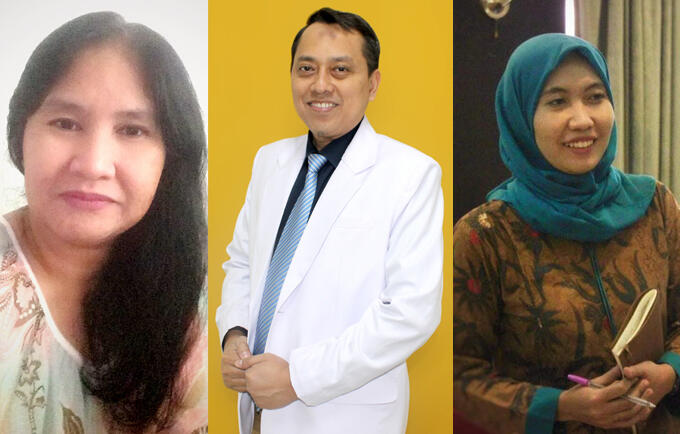Gender-based violence (GBV) is a pandemic that has victimized millions of women and girls. The COVID-19 pandemic has exacerbated existing gender inequality, making women and girls more vulnerable to GBV. Our latest study has predicted that there will be 31 million more GBV cases happening around the world if social restrictions last for six months or longer.
This is where frontline GBV responders play a critical role. They work hard to provide the best services for victims and survivors in a time when they also often need help to survive the pandemic. Here are the stories of three GBV frontliners who are the source of hope amid hardship with their commitment to help.
Ika Putri: “I have a strong urge to help”

“I wonder why my video isn’t working. My child probably pushed a button that disabled the video by accident. Hold on, let me fix it,” Ika Putri Dewi said before our online meeting on a Friday afternoon started. Ika had to wait for her child to finish with her school work to use the computer. This is only one of the challenges she has faced in performing her work as a psychologist that focuses on children and adolescents at Yayasan Pulih, a foundation that provides psychological services and psychosocial support for survivors of violence, including gender-based violence (GBV).
Ika admitted to feeling comfortable working from home and spending more time with her family. At the same time, however, she has found juggling her professional work and responsibilities at home during the COVID-19 pandemic challenging, especially with her husband, who works as a sailor, often away from home.
“Working from home, there’s a sense of comfort because I can be closer to my family. On the other hand, although the division of roles at home is pretty just from a gender perspective, I still face challenges as a mother working from home, especially in managing time to monitor my child’s online class,” she explained. “When my husband is at home, he helps. But when he’s sailing, it’s a bit hard for me… Internet connection is also another challenge,” she added.
Forcing people to spend more time at home, the pandemic has added the burden of household chores on women, especially those who do not get help from other family members. However, the situation has not stopped Ika from giving her best to her clients and being committed to her job. Her goal is to help her clients get fully “pulih,” the Indonesian word for “recovered”. “It’s the recovery that we want. We want to see our clients function optimally in their daily lives again. Even when they are having their ‘off’ moments, because that’s part of the psychological dynamics, they at least know how to manage them.”
At Yayasan Pulih, Ika works on cases of GBV in the forms of sexual violence, domestic violence, to intimate partner violence. She provides psychological counseling for survivors and psychological examination to help survivors go through a legal process to find justice. Providing expert testimonials at the court, helping her clients prepare for the court, and accompanying them during trials are part and parcel of her job. Additionally, she also provides psycho education through training and public outreach.
Since the pandemic hit Indonesia, Yayasan Pulih has provided services online for the clients. “Things have changed substantially during the pandemic. Because it’s impossible for us to meet the clients face to face, we have opened services online,” she explained. “During face to face meetings, we can interact directly with the clients, so it’s really different when we do it online. But we can’t just stop because we have clients and they will continue to need our services,” she added.
Additionally, Yayasan Pulih has also started to provide GBV services for free since April. “For GBV services we create a special lane to ensure quick access and help. The services are still available during weekdays, but if a client has a day job and can only access the services outside working hours they can still do that. There’s a special registration for clients that need to be handled right away, and they can make appointments via Whatsapp,” Ika described.
Working with a new modality in a pandemic is not easy, but her dedication keeps her going. “It’s more than just an obligation for me. I have a strong urge to help the victims. I know that when a gender-based violence victim is handled by those who lack gender perspective the treatment can go wrong. As a result, it can hinder recovery,” she said with a conviction.
Dr. Boge Priyo Nugroho: “I strive to make my patients feel safe”

Ever since he joined the Tarakan Regional General Hospital (RSUD Tarakan) in Jakarta in late 2018, Dr. Boge Priyo Nugroho, a forensic and medico legal specialist, has committed to providing responsive comprehensive services for women and children who are survivors of violence.
“Since I started my career as a general practitioner, I’ve been an idealist. I empathize with my patients. Every time I treat my patients, I empathize with what they feel. When I took a specialization in forensics, I learned about violence cases,” he reminisced. After joining Tarakan Hospital as a forensic specialist, he found out that despite legislation on medical treatments for victims of violence at provincial and national levels, the expertise in forensic, and thus the services, were lacking.
After the Jakarta Governor Anies Baswedan announced the plan for making Jakarta a safe city for women and children in 2018, dr. Boge has gained opportunities for capacity building facilitated by the DKI Jakarta provincial government, the Police, the Ministry of Health, and the United Nations.
“I visited the Sunflower Center in South Korea and the National Police hospital here. I also read the Ministry of Health’s Regulation no. 1226/2009, which stipulates services like general counseling, psychological counseling, supporting health counseling, and medico legal services for victims of violence. I combined them to develop the services,” he elaborated.
The experience became Dr. Boge’s inspiration in establishing the Bunga Tanjung Integrated Care Center (PPT) at Tarakan Hospital. As a hospital-based crisis center for gender-based violence (GBV) survivors, Bunga Tanjung comprehensively provides specialist, medical support, counselling, and forensic services. “We also work with related institutions such as the Police and the Center of Integrated Services for the Empowerment of Women and Children or the P2TP2A, which play a role in counselling for victims and legal processes,” he explained.
The services are provided for free. “I strive to make the patients feel safe and comfortable when accessing medical treatment at Bunga Tanjung… We treat everyone without asking them to pay. We accept everyone.”
Treating patients during the pandemic can be anxiety inducing, however, according to dr. Boge, the health protocols have helped.
“Yes, I do get worried... However, I have faith in our services, especially in the capacity of our ER in screening COVID-19 in incoming patients... We have reinforced the health protocols to the visitors, patients, and ourselves as healthcare workers... I also wear a mask and a pair of gloves. If I think I need to make skin to skin contact with and examine the patient, especially for sexual violence and injury, I will wear PPE,” he said.
Studies have shown that GBV has been on a rise due to lockdowns and other impacts of the pandemic. Surprisingly, the number of patients coming to Bunga Tanjung has seen a decline. “What has changed the most is the situation. The other change is the frequency or number of patients—we have had fewer patients probably due to fear of going to the hospital.”
Therefore, dr. Boge would like to encourage survivors of gender-based violence to report and seek treatment. “My advice is not to be afraid of reporting or taking victims of violence for a check up at PPT Bunga Tanjung... You don’t have to think about the fees,” he said.
“I want people to explore the services and report their experience so that we can address the root causes. And I really hope that the Jakarta Governor’s goal of making Jakarta a safe city for women and children can come true,” he said optimistically.
Siti Mazumah: “By strengthening the victims, we strengthen ourselves”

The COVID-19 pandemic does not stop gender-based violence (GBV). On the contrary, it renders women and children more vulnerable to violence, especially domestic violence and online GBV. Siti Mazumah (Zuma), the Director of Legal Aid Foundation of Indonesian Women’s Association for Justice (LBH Apik) Jakarta, knows it better than most people.
“So far we have recorded over 50 percent increase of cases of violence against women… There’s an increase in cases of online GBV, such as women being threatened of having their intimate videos or photos distributed through social media... But the highest number of cases is domestic violence,” Zuma explained.
LBH Apik Jakarta provides legal aid for women and children who are victims of violence. They help violence survivors with litigation services to seek justice. For non-litigation services that address other needs, from psychological counseling to safe houses, they collaborate with partner organizations and institutions such as Yayasan Pulih and the Witness and Victim Protection Agency (LPSK). “Our mission is to help women and children find justice,” Zuma said, firmly.
Even before the pandemic, LBH Apik Jakarta has already provided online services via hotline. So when COVID-19 hit Indonesia in March, Zuma and her team immediately announced to the public that all legal consultations would be conducted online. It has helped them continue to help violence survivors, and even allow those outside Jakarta to access the services.
“We have had so many victims accessing the online consultation because if we usually receive clients from Jakarta and the surrounding areas, now people from nearly all over Indonesia come to us… It has resulted in the increased number of cases we have received,” said Zuma.
In response to a surge in domestic violence cases, LBH Apik also expanded their service to providing an emergency safe home. “In the beginning of the pandemic, we had difficulty in accessing state-owned safe houses. So, we decided to raise funds by calling for public donations and selling pre-loved items to rent a safe house for victims,” Zuma recalled. “It’s not actually in LBH Apik’s mandate to provide a safe home, but since it’s an emergency situation we cannot let victims stay with the perpetrators at home,” she added.
LBH Apik Jakarta has indeed been highly responsive to the pandemic and the resulting rise in GBV. They continue to accompany survivors in online trials, organize online discussions on topics that address the current phenomena such as domestic violence and the Elimination of Sexual Violence bill (RUU PKS), and engage their trained community paralegals. The paralegals have been instrumental in ensuring that clients who cannot access the online services can still get help.
Additionally, aware of economic hardship that many women face during the pandemic, the organization also helps women in their local communities build food security through farming.
Helping GBV victims amid a pandemic is certainly not easy, but Zuma and her team find ways to cope and stay motivated. “Because we work from home, we tend to work all the time. To address this, we made social media posts, on Instagram, on how to manage mental health in the COVID-19 situation, by doing meditation and so on. We would do it together. We don’t want our immunity to be affected by stress.”
Ultimately, commitment to helping women and children is what keeps Zuma and her team motivated.
“The desire to provide the best services… has been the source of our motivation… By strengthening the victims, we also strengthen ourselves in the end.”
Dian Agustino
Communications Officer
UNFPA Indonesia



